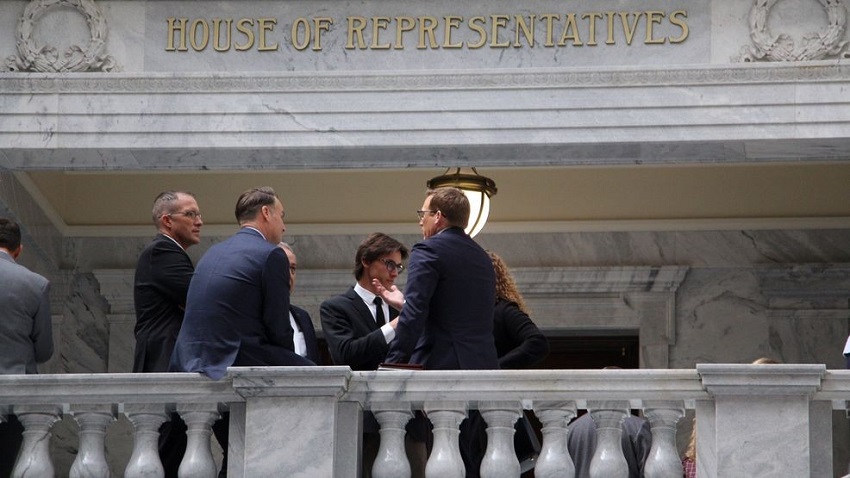Ogden, UT – Utah lawmakers have advanced a bill that would significantly restrict labor rights in the state’s public sector, sparking heated debates across the political spectrum. The proposed legislation, which passed the House Business, Labor and Commerce Committee in an 11-4 vote, seeks to eliminate collective bargaining for all public sector employees, including teachers, law enforcement, and transit workers.
If enacted, the bill would bar unions from negotiating on behalf of workers for better wages, working conditions, and benefits, which critics argue is a direct attempt by Republicans to diminish the political influence of unions, particularly teachers’ unions. The bill’s sponsor, Rep. Jordan Teuscher, a Republican from South Jordan, argues that collective bargaining agreements often limit workers’ ability to directly engage with their employers in addressing workplace concerns. Teuscher suggests that the proposed system would allow employees to participate more directly in negotiations, bypassing union intermediaries.
However, the bill has drawn sharp criticism from educators, who make up a significant portion of the state’s unionized workforce. The Utah Education Association (UEA), which represents public school teachers, called the bill a direct attack on educators’ rights to have a collective voice in decisions that affect their classrooms. “The harm of the bill will be borne by public school educators living and working in every single legislative district,” said Sara Jones, president of the UEA. “It sends a message that educators don’t deserve a collective voice in their profession, don’t deserve input on their salaries or working conditions or benefits.”
Teachers unions in Utah have been vocal opponents of several Republican-backed policies in the state, particularly in relation to education reforms. These include efforts to expand school choice vouchers, restrict transgender bathroom use and sports participation, and eliminate diversity, equity, and inclusion programs. Many critics argue that the bill is part of a broader strategy by Republicans to weaken unions as a political force, particularly since teachers’ unions tend to be more liberal and often oppose conservative education policies.
Supporters of the bill, including members of the state’s Republican leadership, contend that collective bargaining often silences the voices of individual workers, particularly those who do not align with union views. “We need all voices to be heard in the teaching profession, and not just those that align with the union and their political views,” said Cole Kelley, a Republican member of the Utah State Board of Education and high school teacher in American Fork.
The bill has raised concerns beyond education, with other public sector employees fearing the loss of union representation in contract negotiations. Firefighters, for example, have voiced concerns that they will lose their ability to advocate for workplace safety standards without union support.
Despite these concerns, the bill has significant backing from top Republican officials in the state, including House Speaker Mike Schultz. The proposal also aligns with broader national Republican efforts to reduce union influence in public sector jobs, a trend seen in other states such as North and South Carolina, where collective bargaining has been banned for decades.
Labor experts argue that if passed, Utah’s bill could place the state among the most restrictive in the country for public sector unions. John Logan, a labor expert at San Francisco State University, called the measure “fairly extreme” and pointed out that it would place Utah in the same category as states like North and South Carolina, which have some of the lowest unionization rates in the nation.
While the bill would still allow state employees to join unions, it would prevent those unions from negotiating on their behalf. Utah would join a growing list of states that have enacted laws restricting the power of public sector unions, including Texas and Georgia, where only police and firefighters have collective bargaining rights.
As the bill progresses through the legislative process, it remains to be seen how it will impact the political landscape in Utah, particularly in relation to the state’s education policies. The outcome of this legislative battle could have broader implications for union rights and the role of organized labor in shaping public policy in the United States.

